Cork politics: A day in the life of TDs in the Dáil
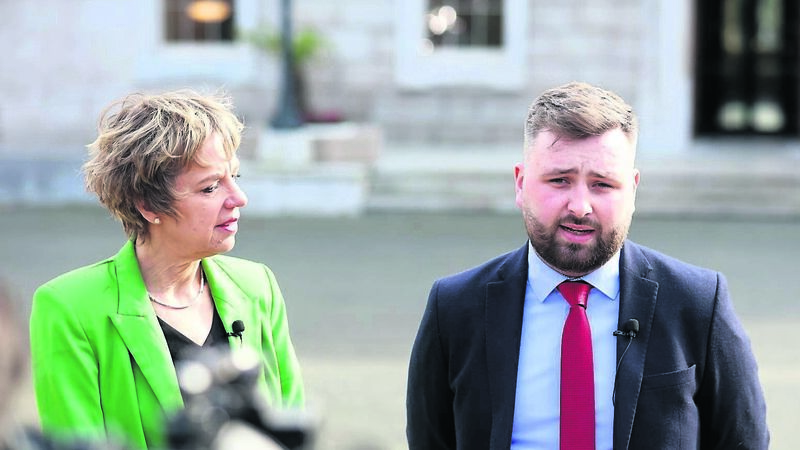
Labour Party leader Ivana Bacik with Education Spokesperson Eoghan Kenny talking to the media. Mr Kenny is theyoungest representative in the 34th Dáil. Photo: Sasko Lazarov/© RollingNews.ie
It’s lunchtime on Wednesday and the sun is splitting the stones outside Leinster House.
It’s about a month before the Oireachtas recess, and by the front door the sixth-class children from Scoil Mhuire Gan Smál, in Claremorris, are in their uniforms and being herded by their teacher into the Georgian building.
Over to the left — geographically, if not politically — Danny Healy-Rae is standing by the entrance to the LH2000 extension, obliging some visitors who want selfies with him.
The geraniums are in bright orange-red bloom on either side of the plinth and the overhead seagull cries are almost drowned out by the sound of drums coming from across the road outside Buswell’s Hotel.
A pro-Palestine rally of about 100 people has been going strong for the past hour or so, with demonstrators chanting, ‘Free, Free Palestine’, with this section of Kildare St blocked off and with gardaí manning the barricades. Nobody is let through without ID and a valid reason to visit Leinster House.
Leinster House, once the ducal palace of the Duke of Leinster, has, since 1922, served as the seat of the Oireachtas, the centrepiece of a maze of interconnected extensions and annexes.
The parliamentary campus is, at least midweek when the Oireachtas is in session, a hive of activity, the workplace of 174 TDs and 60 senators, and also of 1,000 more people who work as ushers, parliamentary staff, caterers, and political journalists.
There are currently 20 Cork TDs — with 10 representing the two city constituencies and 10 representing the county — and six senators. They all make the lengthy commute to the capital each week that the Oireachtas is in session — and some when it isn’t — spending several days at a time away from home to do a job they all say they love and consider a privilege.
The youngest representative in this 34th Dáil is Eoghan Kenny, first-time Labour TD for Cork North Central. The 25-year-old’s name comes up when I ask Gavan Reilly, political correspondent for Virgin Media News and author of The Secret Life of Leinster House, what an average day must be like for parliamentarians.
“This morning, I was switching between the Public Accounts Committee [PAC] and the Dáil chamber,” Mr Reilly says, “and I saw that Eoghan Kenny was in both. Literally within minutes of speaking in the PAC, then he was in the chamber, because he was putting questions to [education minister] Helen McEntee, as Labour’s education spokesperson.
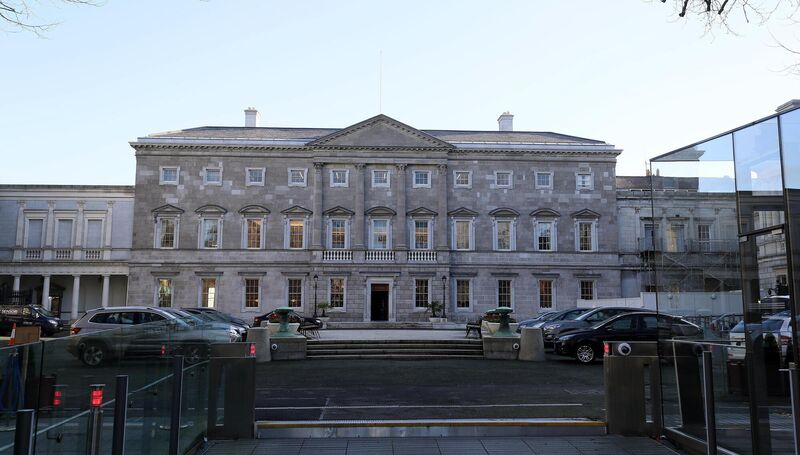
“It’s an illustration of a point I make in the book: When onlookers might be watching the TV, they expect the Dáil chamber to be full, but sometimes the Dáil chamber is the least productive place to be, because unless you’ve got organised speaking time, you’re at nothing. You’re sitting there, looking pretty, but you’re not doing any work, you’re not contributing to anything at all.”
When Leinster House is at full capacity, there are 29 committees across four rooms “and they are running all the time”.
For Mr Kenny, still very new to politics, making the best use of his weekdays in Leister House is only part of the jigsaw.
He says:
“The difficult thing is, you’re trying to manage your constituency office at home, while also trying to manage your parliamentary work in Dublin. It’s a difficult process, especially now that the committees have been formed.”
Mr Kenny’s on the PAC, which meets weekly, and the further-and-higher education committee, which meets fortnightly.
Serving also as his party’s education spokesperson, he has a full schedule when he’s in Leinster House, and, like every other TD who would like to get re-elected, he also has a full-time constituency office.
“I have the support and the experience of my colleagues, but, at the same time, it’s a difficult process,” Mr Kenny says. “You’re coming up to Dublin on a Tuesday morning, you’re coming home Thursday evening, you’re in the constituency on a Monday and Friday, you’re trying to hold clinics around the constituency, and, obviously, you’re trying to build up a base of voters outside of your core vote.”
Nicole Ryan was elected to the Seanad administrative panel for Sinn Féin in January and she says there is a big shift between constituency and legislature.
“You’re never really off,” Ms Ryan says. “People might think you take a break, but you don’t. When you’re in the constituency, you’re focused on trying to help people in the constituency, and there’s always events you’re expected to attend, and when you’re up here you’re focused on legislation.”
“I’m on the Gaeltacht committee, the health committee, and the drugs committee, and two are on Tuesday at the same time, so I’m running between the two at the same time, and sometimes the Seanad is on and you have to run up to the chamber, or down to the committee, or vice versa.”
Fine Gael’s John Paul O’Shea is another first-timer. When he spoke to The Echo, the Cork North-West TD was hosting a large group of friends from home.
“It’s the second group of constituents I’ve had up, and it’s nice to be able to bring people up and let them view the workings of Leinster House first-hand,” Mr O’Shea says.
“Life as a TD is very, very busy. We’re usually in Dublin Tuesday, Wednesday, Thursday, and it’s great to be up in Dublin for the three days and down in the constituency for the remainder, but it’s very busy. I’m part of three Oireachtas committees. I’m chairing one — the social protection and rural community development committee — I’m on the committee of drug use, and of budgetary oversight, so quite a busy schedule up and going.
“The day is filled very, very quickly.”
Laura Harmon, first-time Labour Party senator, previously ran twice for the Seanad and ran for the Dáil in Cork South Central last November.
“I think I’ve hit the ground running,” Ms Harmon says. “I tried to get into Leinster House three times before, and it’s like all things in politics, it’s about resilience, you keep going, and I’m really pleased to be here and to be making changes for the people of Cork, and also for the country in general,” she says.
“It’s really encouraging to see how much change you can make in the Seanad, particularly in terms of legislation, and I’ve had two bills since I started, one in relation to banning sex-for-rent ads, and that’s been taken on by the Government, and the other is in relation to leave for teachers and SNAs who experience assaults in classrooms.”
The shift between local and national work is “savage”, says Michael Collins, a Cork South West TD since 2016 and since 2023 leader of Independent Ireland.
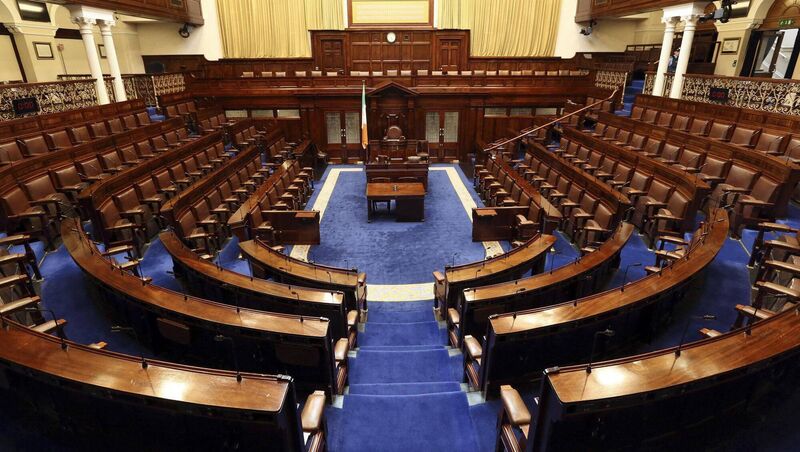
“You’re on full steam ahead in your own constituency,” Mr Collins says. “I do a lot of clinics at the weekend. Friday’s what I call a kind of a clean-up day: You’re meeting people that you promised during the week you’d meet. Saturday’s all the clinics: I start in the morning in Skibbereen at half eight, make my way to Clonakilty, Bandon at midday, then Dunmanway, Bantry, and then back at my own house for clinics at 4pm.
“So you’re very busy, and they’re a great education, clinics are, as to what’s going on in politics. Sunday is usually busy; last Sunday was Clonakilty Show; you might have a public meeting in Kinsale about the mussel farm,” he says.
“Since I became party leader, I have a lot of meetings in Dublin, so you’re heading back early on Monday, and when you’re up here, your days are packed.”
A long-time county councillor and parliamentary assistant to his brother Michael, Fianna Fáil’s Séamus McGrath was elected to the Dáil for Cork South Central for the first time in November. He and his wife, Gayle, have three young children, so it has been a significant change for him, both personally and professionally.
“On a personal level, it’s a big change being in Dublin for three, and sometimes four, days a week,” Mr McGrath says.” It’s an adjustment for the whole family and I think we have adapted reasonably well.
“Professionally, it’s been a steep learning curve in the first few months and, of course, I am still learning. You have to learn all about the procedures and how the Oireachtas operates, which isn’t always straightforward,” he says.
“TDs get contacted on a very wide range of issues and the volume of correspondence is very high. It can be difficult to find the time for everything, but you have to prioritise and do your best.”
Pat Buckley, Sinn Féin TD for Cork East since 2016, says the majority of parliamentarians start out as councillors, and learn their trade by interacting with constituents.
“You do get pulled away from that, being up here four or five days a week, so you have to try and find a balance; you still do your constituency work, but your office is vital, because you’re only one person and you can’t do everything,” he says.
Pádraig Rice, first-time Social Democrats TD for Cork South Central, looks through his diary for the previous day. “The first thing I did yesterday morning was the Social Democrats had a press conference on the plinth,” Mr Rice says. “I spoke about the RTÉ Investigates programme on nursing homes, and concerns around that, the need for change in terms of safeguarding legislation, the reform of the model around home care, in particular, and then I had an engagement with Virgin Media around the situation in Cork for renters.
“When I was back into the Dáil, we had leaders’ questions, and we raised nursing homes. I did a piece with NewsTalk around extra time for Leaving Cert students with dyslexia. I met a group campaigning outside for transgender healthcare, so I met them, I had a meeting with the clerk of the health committee, because as well as being a constituency TD, I’m the chair of the health committee and I had to prep for today’s committee session.”
A meeting with Cork Chamber was followed by Dáil speaking time on boarded-up council houses, and at 8pm he had an online meeting with Ballyphehane Community Association board. “And then, at 11.30pm, I was back in the Dáil on my feet, with a question for the minister for education on the Leaving Cert and exams, so quite a varied day, and they can be quite long days, as well,” he says.
That’s an observation repeated again and again by his Cork colleagues: Being a parliamentarian is hard, but rewarding, and the youngest TD in the 34th Dáil perhaps puts it best. “It’s a difficult process, but it’s one I’m absolutely loving,” Eoghan Kenny says. “If you don’t love this, then you’re in the wrong job.”
In the Oireachtas canteen, the staff are friendly and the prices low. Everything is subsidised, so you’ll get a dinner — top quality and delicious — for about a tenner.
Later in the evening, however, if you fancy a pint, you may be disappointed to learn that the low prices don’t apply to booze.
There are actually two Dáil bars. The strangers’ bar — as it’s known — is open to the public, but the actual members’ bar is strictly for elected representatives. It still has a certain mystique, but the members swear its main attraction is the privacy.
On the Wednesday night when The Echo goes for a pint with four unnamed Cork parliamentarians, the strangers’ bar is relatively busy, but far from packed, and the gathering is quite civilised, with many representatives drinking Ballygowan.
There’s slagging, and cross-party camaraderie, but it’s not a raucous or drunken evening — it’s clearly a ‘school night’ — and the bar is cleared well before midnight.
Older TDs and senators say, some with what sounds like a certain regret, that the drinking culture is dead and buried in Leinster House nowadays.
“Is it weird to have a pub inside your workplace?” asks one Cork parliamentarian — the bar is literally across the corridor from a Dáil chamber exit.
“I suppose it is fairly odd, but there again, most of the time I’m in the members’ bar it’s to have a toasted sandwich and a cup of coffee in a bit of peace and quiet. The days of fellas falling asleep after a feed of pints are long gone.
“I might have a pint or two on a Wednesday night — it’s a long auld day and you like to unwind a bit — but there’s no going mad when you might have to drive home the next day, and either way you’ll be working your arse off anyway, so a sore head is no help to you.”
More in this section
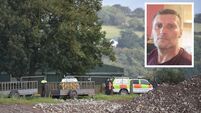
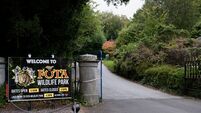





 App?
App?


